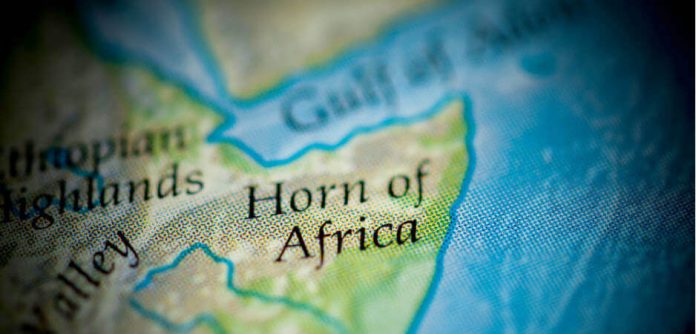According to the SIRAD Institute’s regional safety and security reports, the Somaliland territories are struggling to re-establish again a functioning independent state since the collapse of an authoritarian regime of General Mohamad Siad Bare. A breakaway, semi-desert territory on the coast of the Gulf of Aden, Somaliland unilaterally declared independence since 1991.
The former British protectorate of Somaliland has escaped much of the chaos and violence that plague Somalia Republic, especially Southern Somalia.
Population census: 8.5 million (Somali Institute Of SIRAD, July 2017)
Area: 137,600km² (68,000 sq. miles)
Climate: Somaliland has a tropical monsoon type of climate
Capital City: Hargeisa, the other main towns are Burao, Borama, Berbera, Erigabo and Las Anod
Major languages: Somali, Arabic, English
Official mouthpiece: Radio Hargeisa and Somaliland National Television (SLNTV)
Religion: Sunni Islam
Life expectancy: 61 years (men), 47 years (women)
Official Currency: Somaliland Shillings, ZAD and US$
Major Company: DahabShiil
Critical Assets: Fish, Livestock, Gas and Unknown Mining stocks
Safety and Security: Somaliland Security Forces protects land and Sea waters
Somaliland Waters: A zero threat to international shipping
Illegal fishing: Fish stocks depleted by illegal foreign vessels
Trade & Investments: Saudi Arabia, UAE, Ethiopia and Djibouti
Vision: To be independent state recognized by the International Community
Leadership: Presidential Rule led by Kulmiye Party
President: President Ahmed Mohamed (Silanyo)
Political Parties: Three major Political Parties, Kulmiye, Wadani and UCID
Background: Questions about Governing Styles in Somaliland Territories
The Republic of Somaliland was Protectorate under the British rule from 1884 until June, 26th 1960 when Somaliland got its independence from Britain. On July 1st 1960 it joined the former Italian Somalia to form the Somali Republic. The union did not work according to the aspirations of the people of Somaliland, and the strain led to a civil war from 1980s onwards and eventually to the collapse of the Somali Republic. After the collapse of the Somali Republic, the people of Somaliland held a congress in Burco which it was decided to withdraw from the Union with Somalia Republic and to reinstate Somaliland’s sovereignty.
7th-19th centuries – From the 7th-century arrival of Islam onwards, modern-day Somaliland is ruled by a series of at times by Muslim Sultanates of Al-Sheikh Rulers and their Sons, Including, Sheikh Yousuf Al-Kawniin, Sheikh Aw-Qudub, Sheikh Nuh, Sheikh IsXaq Bin Ahmad (Isaq), and Turkish Empire (Othman sultanates of Harar and Barbara).
18th -19th century started a regional war between Abyssinian tribal forces (Highlanders) against Harar Empire with the support of Russia weapons, Portugal militia with logistics and all other European forces to defeat Harar Sultanates and its allies of Othman Empire in walled city Harar, Barbara and Sylac (coastline – Port connected to Far-East and Arabian Golf).
1884-1888 – Britain establishes the protectorate of British Somaliland though treaties with the local sultanates, Imams, Ugas and Sheiks.
1899 -1926 – The Rebel cleric Mohammed Abdullah (known Mad Mullah) rises against British rule and Local Sunni Shafici sect to establish the Dervish State, which destroyed by Local tribes with the support of British Empire’s air and ground forces in 1920.
June 26, 1960 – Somaliland become independent and merges 1st July, 1960 into the Republic of Somalia.
1990-1991 – The former British Somaliland declares unilateral independence as Somaliland following the ousting of Somali President Mohamed Siad Barre, which plunges the rest of Somalia into mini-states.
2001 – More than 97% of the population votes to endorse the constitution adopted in 1997, in a referendum aimed at affirming Somaliland’s self-declared independence.
2016 – Somaliland celebrates 25 years of self-declared independence, but remains unrecognized either Regional Organizations, such as IGAD, AU or United Nations in New York.
Somaliland’s General Presidential Election: 13th of November 2017
2017 Elections Initiatives: The Somaliland’s general elections were scheduled to be held in Somaliland on 27 March, 2017 to elect the President and House of Representatives, but were postponed by six months due to the drought condition in the Horn of Africa regions. The International community, including European Union (EU) and UN advise them not to postpone election again.
The elections are officially scheduled to be held on 13 November 2017. The current President Ahmed Mohamed Silanyo will not be running for a second term. Musa Bihi was elected In November 2015 as the presidential candidate for the ruling Party Kulmiye, and the presidential candidate for Wadani Party will be Abdirahman Mohamed Abdullahi (Cirro). The Justice and Development Party (UCID) will be Faisal Ali Warabe.
SIRAD Institute (The Somali Institute of Security, Diplomacy & Strategy to Empower Somali Statecraft)
The Somali Monthly Governance Briefing Abstracts Copyright © 2017 SIRAD Info@siradinstitute.com




























